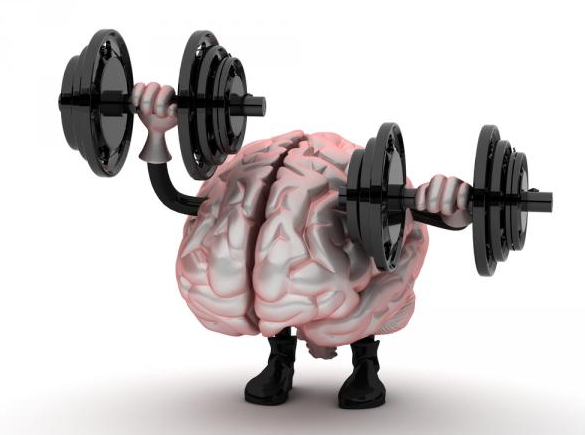
In today’s fast-paced world, it’s not uncommon to experience moments of mental fogginess or difficulty concentrating. This phenomenon, often referred to as “brain fog,” can be frustrating and hinder productivity and overall cognitive function.
While there are several factors that can contribute to brain fog, one area worth examining is our diet. Research suggests that what we eat can significantly impact our mental clarity and focus. In this article, we will explore the relationship between diet and brain fog, and how making conscious dietary choices can help sharpen our minds.
The Role of Inflammation
One potential link between diet and brain fog lies in inflammation. Studies have shown that certain foods can trigger an inflammatory response in the body, leading to a cascade of effects, including brain fog. Foods high in refined sugars, unhealthy fats, and processed ingredients have been associated with increased inflammation.
On the other hand, a diet rich in fruits, vegetables, whole grains, and lean proteins has been shown to have anti-inflammatory effects. By reducing inflammation in the body, we may also reduce the occurrence of brain fog.
The Gut-Brain Connection
Another fascinating area of research is the gut-brain connection. Our gut houses trillions of bacteria, collectively known as the gut microbiota, which play a vital role in our overall health, including brain function.
Studies suggest that imbalances in the gut microbiota, often caused by a poor diet, can contribute to brain fog and cognitive decline. To support a healthy gut-brain axis, it is crucial to consume a diet rich in fiber, prebiotics, and probiotics. These can be found in foods like fruits, vegetables, whole grains, fermented foods, and certain dairy products.
Nutrient Deficiencies
Certain nutrients have been linked to brain function and cognitive performance. Deficiencies in these nutrients can contribute to brain fog and impaired mental clarity. For example, inadequate levels of omega-3 fatty acids, commonly found in fatty fish, walnuts, and flaxseeds, have been associated with cognitive decline.
Similarly, deficiencies in B vitamins, particularly vitamins B12 and folate, which are abundant in leafy greens, legumes, and fortified cereals, have been linked to poor memory and concentration. Ensuring a balanced diet that includes these essential nutrients is vital for optimal brain health.
Hydration
Dehydration can have a profound impact on cognitive function, leading to symptoms of brain fog. Even mild dehydration can impair concentration, memory, and overall mental performance.
Aim to drink at least eight cups of water daily, and more if you engage in physical activity or live in a hot climate. Herbal teas, infused water, and consuming water-rich fruits and vegetables can also contribute to hydration levels.
Mindful Eating
In addition to specific dietary considerations, adopting mindful eating practices can also contribute to improved mental clarity. Mindful eating involves being present and fully engaged with the eating experience. It encourages us to savor the flavors, textures, and aromas of our food, while also paying attention to our body’s hunger and fullness cues.
By practicing mindful eating, we can enhance our digestion, promote a healthier relationship with food, and potentially reduce brain fog caused by overeating or undereating.
The Impact of Caffeine and Alcohol
While caffeine and alcohol are not technically foods, their consumption can influence brain fog and cognitive function. Caffeine, commonly found in coffee, tea, and energy drinks, can provide a temporary boost in alertness and focus.
However, excessive consumption or dependency on caffeine can lead to dependency and withdrawal symptoms, including brain fog. It’s important to moderate caffeine intake and be mindful of its effects on your individual tolerance levels.
Similarly, alcohol can impair cognitive function and contribute to brain fog. Alcohol is a depressant that can disrupt sleep patterns, cause dehydration, and hinder neurotransmitter function. Excessive alcohol consumption can result in mental fogginess, memory problems, and difficulty concentrating. To minimize the impact of alcohol on your cognitive performance, it’s advisable to consume alcohol in moderation and ensure you stay hydrated.
The Importance of Regular Physical Activity
While this section does not specifically address diet, it’s worth noting that regular physical activity can have a positive impact on brain fog. Engaging in exercise releases endorphins, reduces stress, improves blood circulation, and enhances overall brain function.
Exercise has been shown to improve cognitive abilities, memory, and attention span. By incorporating regular physical activity into your routine, you can enhance mental clarity and potentially reduce the occurrence of brain fog.
Conclusion
When it comes to combating brain fog through diet, it’s important to note that individual responses may vary. What works for one person may not work for another. Experimenting with different dietary approaches and observing how your body and mind respond can help identify the most effective strategies for you.
Remember, achieving a healthy and balanced diet is a gradual process, and small, sustainable changes can have a significant impact on your overall well-being. For additional information and a variety of food options that align with your dietary goals, explore reputable sources that offer a wide range of choices.
Our dietary choices have the potential to either contribute to or alleviate brain fog. By focusing on an anti-inflammatory diet, supporting a healthy gut microbiota, addressing nutrient deficiencies, staying hydrated, and practicing mindful eating, we can optimize our brain health and enhance mental clarity.


















Follow Us